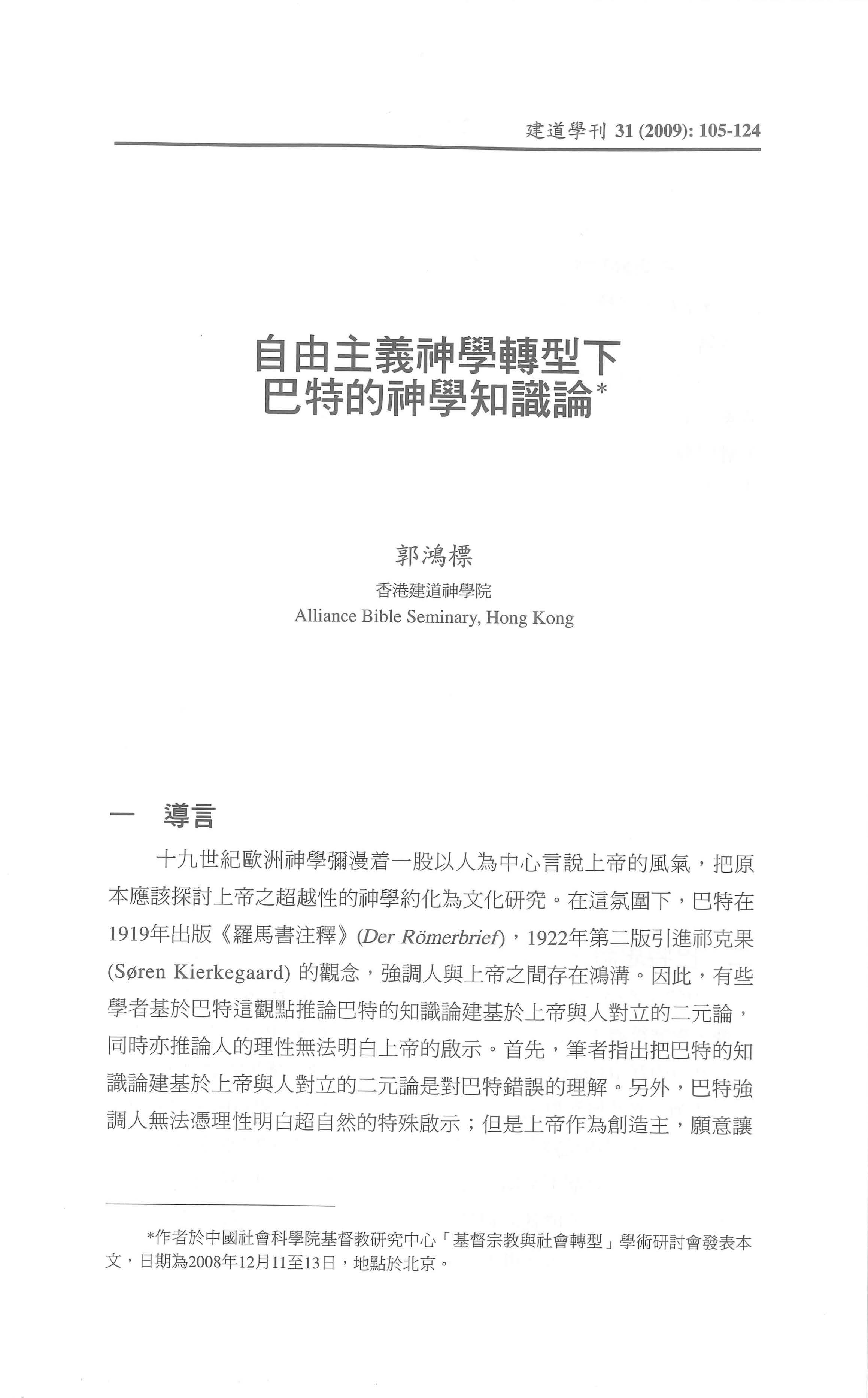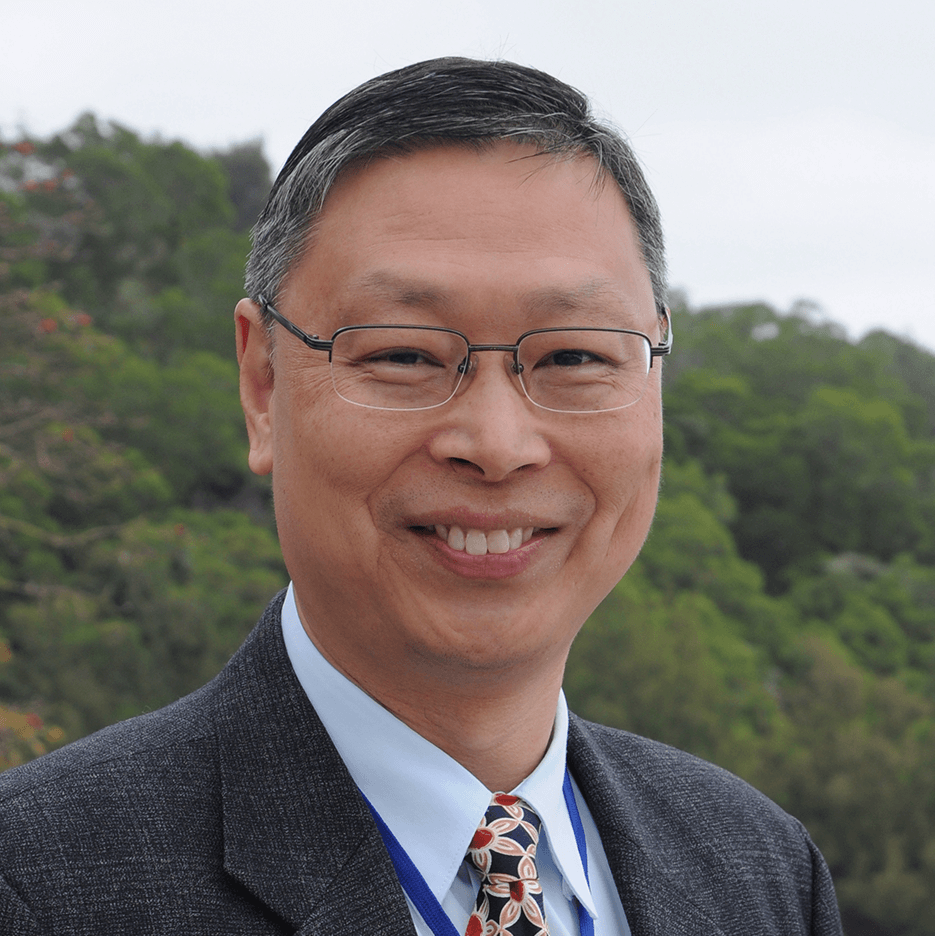自由主義神學轉型下巴特的神學知識論/郭鴻標
撮要
本篇論文主要按照巴特《教會教義學》(Die kirchliche Dogmatik)的德文原典閱讀,把巴特思想脈絡主要的觀念交代清楚,其中強調上帝的道的優先性,在這個基礎下申論人作為上帝受造的夥伴,開展一種上帝與人兩者主體互動的知識論。巴特沒有否定人的宗教經驗,只是在上帝的啟示為基礎下探討人在教會中與上帝的道相遇所產生的宗教經驗。巴特強調在耶穌基督裏,永恆的上帝進入現在,將永恆與時間連結起來。如此,超越的上帝成為內蘊的上帝,同時是一位來臨中的上帝(kommender Gott)。巴特反對的是自由主義神學所塑造的「文化基督教」(Kulturprotestantismus)。按這思路,筆者認為巴特的神學值得華人學者注意。漢語神學除了包括文化研究的向度以外,亦應該包括教會向度,並且應該運用這些神學資源來發展公共神學,批判社會不公義的現象,促進社會和諧。
ABSTRACT
This paper follows the German original text of Karl Barth’s Die kirchliche Dogmatik to report the main theme of Barth’s primacy of the Word of God. Based on this presupposition, Barth argues that human being is the created partner of God and develops an inter-subjective Epistemology. Barth doesn’t deny human religious experience, but discusses the human religious experience arising from the human interaction with the Word of God in the Church. Barth emphasizes the eternal God entering the presence in Jesus Christ and links up eternity and time. For this reason, the transcendent God becomes the immanent God and also a coming God. Barth rejects the “Cultural Protestantism” developed by the Liberal Theology. Following this track, the author thinks that the Chinese scholars need to pay more attention to Barth’s theology. The Sino-Theology should not only be limited to cultural studies, it should also include the Church dimension, use these theological resources to develop a kind of “Public Theology” as a social critique of the inequality, and to make contribution to fostering a harmonious society.
原載於《建道學刊》31期(2009年1月),頁105-124。
作者簡介
郭鴻標
神學系教授
副院長 (行政)
Latest Articles
新手牧者研究計劃(三):新手牧者的身心靈狀態 / 盧慧儀
2025 年 11 月 19 日
個體與關係:滕近輝思想中「深化」的靈性觀 / 倪步曉
2025 年 11 月 18 日
香港九龍塘基督教中華宣道會之起源和發展史/陳智衡
2025 年 10 月 20 日
Highlights
[電子書]困境與抉擇:「建道研究中心30週年誌慶」跨學科研討會論文集/廖炳堂、倪步曉主編
2025 年 1 月 2 日
從梧州到長洲:建道神學院125年的挑戰與恩典 / 陳智衡
2023 年 10 月 1 日
微小教會的見證/高銘謙
2023 年 6 月 1 日








